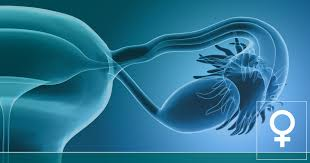
Ready to unravel the mystery of hypothalamic amenorrhea? It’s a fancy term for when your brain’s conductor, the hypothalamus, decides to take a break from producing the hormone that controls your periods. Result? Your periods are missing or absent due to the condition of hypothalamic amenorrhea and you’re left scratching your head with Hypothalamic amenorrhea symptoms.
But fear not! We’ve got the perfect solution for you. Doctor Kaylee Alton is your fertility superhero! They can work their magic to bring back your periods and ovulation. So whether you’re looking to feel healthy, banish acne, or start a family, they’ve got your back.
But hold up, there’s one thing to keep in mind hypothalamic amenorrhea can put your baby-making plans on hold. Yes, it means you’re temporarily unable to conceive. But don’t worry; we’ll get those hormones back on track, and your ovaries will be dancing again in no time!
Consequences of Hypothalamic Amenorrhea
Remember, you’re not alone, and self-care is key to conquering hypothalamic amenorrhea. Hypothalamic amenorrhea is a challenge due to their hectic schedules, stressful environments, and possible neglect of self-care. It may hinder career growth. It can lead to more absences and lower productivity, affecting evaluations, promotions, and overall progress in a legal career.
Lower energy levels and hormonal imbalances can result in reduced productivity and efficiency. Balancing demanding workloads with emotional strain, fertility worries, and absent menstrual cycles can be taxing. Seeking medical help, prioritizing self-care, and building a support system is vital to address these concerns and achieve a harmonious blend of work and personal life.
What is hypothalamic amenorrhea?
Hypothalamic amenorrhea is a condition where the hypothalamus stops producing a hormone that controls menstruation. Hypothalamic amenorrhea symptoms to the cessation of menstruation for an extended period due to an issue with the hypothalamus, a vital brain region responsible for regulating reproduction and producing gonadotropin-releasing hormone (GnRH). To treat your problem naturally MAKE CARE HEALTH CLINIC will help you through a free discovery call.
For women aiming to get their period back to feel healthy, improve their acne or skin health, or who may want to conceive, working with a naturopathic doctor can help restore menstruation and ovulation.
Natural treatment of hypothalamic amenorrhea is preferred to restore hormonal balance without side effects. Factors such as inadequate nutrition, excessive stress, or intense physical activity can disrupt the hypothalamic-pituitary-ovarian axis, leading to this condition. hypothalamic amenorrhea will make women infertile during the period she is not having her period, as she is not ovulating.
Hypothalamic amenorrhea symptoms
The most common symptom of hypothalamic amenorrhea is not getting your period for three months or longer. The hormonal imbalance may lead to additional symptoms, such as::
- Absent menstrual periods
- Decreased sexual desire (low libido)
- Trouble sleeping
- Feelings of sadness or depression
- Reduced energy levels
- Increased appetite
- Feelings of nervousness or anxiety
- Acne breakouts
Treatment of hypothalamic amenorrhea

Are you experiencing hypothalamic amenorrhea and seeking expert guidance to regain your hormonal balance and overall health? Want to get your period back? And prevent this from reoccurring? Join the Confident Hormone Club now!
The approach to treating hypothalamic amenorrhea varies based on its root cause. Treatment options may involve managing stress, increasing calorie intake, and reducing exercise intensity. Additionally, in certain instances, medications might aid in hormonal regulation.
The approach to treating hypothalamic amenorrhea varies based on its root cause. Treatment options may involve managing stress, increasing calorie intake, and reducing exercise intensity. Additionally, in certain instances, medications might aid in hormonal regulation.
As a member, you’ll also benefit from our robust resource platform, granting you access to past recordings, helpful modules, treatment cheat sheets to share with your healthcare providers, and a wealth of other health resources.
Hypothalamic amenorrhea blood test results are required to treat?
To confirm the presence of hypothalamic amenorrhea, your doctor may conduct a GnRH stimulation test, which is the most reliable method for detecting this condition. Your naturopathic doctor may want to stimulate your period production with a progesterone challenge.
As part of the initial assessment, women diagnosed with hypothalamic amenorrhea should undergo a series of laboratory tests to assess hormone levels, including estrogen, thyroid hormones, and prolactin. This comprehensive workup aims to identify any underlying factors that may be contributing to the absence of menstruation.
Can amenorrhea cause infertility?
Yes, hypothalamic amenorrhea by definition means you are infertile, but it doesn’t mean indefinitely. This condition arises when inadequate nutrition or excessive stress disrupts the brain’s ability to regulate the menstrual cycle and causes ovulation. You can become fertile again.
Can you get pregnant with amenorrhea?
The possibility of pregnancy in cases of amenorrhea depends on its underlying cause if primary amenorrhea is a result of a congenital malformation or an imperforate hymen.
Pregnancy remains a possibility since ovulation occurs as normal, but the menstrual blood is unable to leave the body. Surgical intervention can rectify this issue, facilitating pregnancy. However, when primary amenorrhea is caused by gonadal dysgenesis, like Turner syndrome, natural pregnancy becomes impossible because the ovaries do not function properly.
Marcus Gunn syndrome
Marcus Gunn syndrome is a rare genetic disorder typically present from birth. It is distinguished by a rapid upward movement of one upper eyelid every time the jaw moves. Additionally, individuals with this condition may experience other eye abnormalities and vision difficulties.

